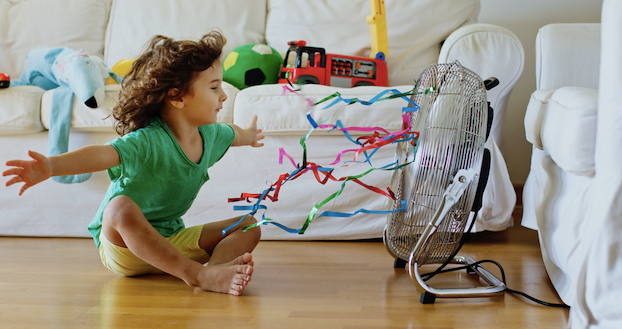With a blisteringly hot weekend in the offing, many residents are wondering how they’ll survive without an air conditioner.
Environment Canada is predicting temperatures of up to 37C or higher, with much of B.C. under an extreme weather alert due to a heat dome keeping hot air over much of the province.
A heat dome forms when the jet stream migrates north, allowing an intense, high-pressure system to create a cap over hot ocean air.
And when that air descends, it warms; by trapping heat at the surface, the "dome" creates a feedback effect leading to sweltering conditions from day to night.
The wave of high pressure is so large, according to officials, that it’s expected to bring extreme hot weather to a region stretching from Oregon to southern Alaska.
Both the city of Port Coquitlam and Fraser Health offer a number of tips to avoid getting overheated:
GO SOMEWHERE COOL
- Cool down in an air-conditioned location such as a store, shopping mall, movie theatre or library
- Visit a spray park or book a visit at one of our four outdoor pools
- COVID-19 restrictions are in place, pre-registration is required via the city of Port Coquitlam's website.
Protect yourself, your pets and your loved ones by:
- Avoiding sun exposure
- Go out when it’s cooler, stay in the shade and cover your head and face with a wide-brimmed breathable hat or umbrella; use sunscreen that is SPF 30 or higher
- Dressing in lightweight, light-coloured and loose-fitting clothing made of breathable fabric
- Not leaving people or pets in your care inside a parked vehicle or in direct sunlight
- Checking frequently on family members, neighbours and friends who are elderly or chronically ill to make sure they are cool and hydrated
STAYING COOL AT HOME
- Taking a cool shower or bath
- Preparing meals that don’t need to be cooked in the oven, such as fresh meals that don’t require cooking
- Avoiding caffeine or alcoholic beverages as both can act as diuretics and promote dehydration
- Blocking out the sun by opening awnings, and closing curtains or blinds during the day
- Drinking plenty of water to stay hydrated; use a cool cloth or consider using a spray bottle filled with cold water for refreshing spritzes throughout the day
- Heading to a room in the basement for slightly cooler temperatures
- Sitting in the path of a fan that is aimed at an open cooler or a pan filled with ice
SIGNS OF OVERHEATING IN HUMANS
The symptoms of heat illness include dizziness or fainting, nausea or vomiting, headache, rapid breathing and heartbeat, extreme thirst and decreased urination with unusually dark yellow urine.
Heatstroke is a medical emergency and you're urged to call 9-1-1 if you are caring for someone who has a high body temperature and is either unconscious, confused or has stopped sweating.
And, while waiting for help, cool the person right away by:
- Moving them to a cool place if you can
- Applying cold water to large areas of their skin or clothing
- Fanning the person as much as possible
For more information about what to do during a heatwave, you can visit the heat page on the city of Port Coquitlam's website.
For health-related inquiries call 8-1-1 or visit HealthLinkBC's website.
SIGNS OF OVERHEATING IN PETS
Signs of heatstroke include:
- Exaggerated panting, or the sudden stopping of panting
- Rapid or erratic pulse
- Salivation, anxious or staring expression
- Weakness and muscle tremors or lack of coordination
- Convulsions or vomiting, and collapse
What to do, according to the SPCA:
- Move the animal to a cool, shady place
- Wet the animal with cool water
- Allow the animal to drink some cool water (or to lick ice cream if no water is available)
- Take the dog to a veterinarian as soon as possible for further treatment
You can help a pet by keeping a kit in your car, in case you spot an animal in distress.
This includes bottled water, a small bowl, a small battery-powered fan and a towel that can be soaked in water.
- with files from Stefan Labbé, Glacier Media



